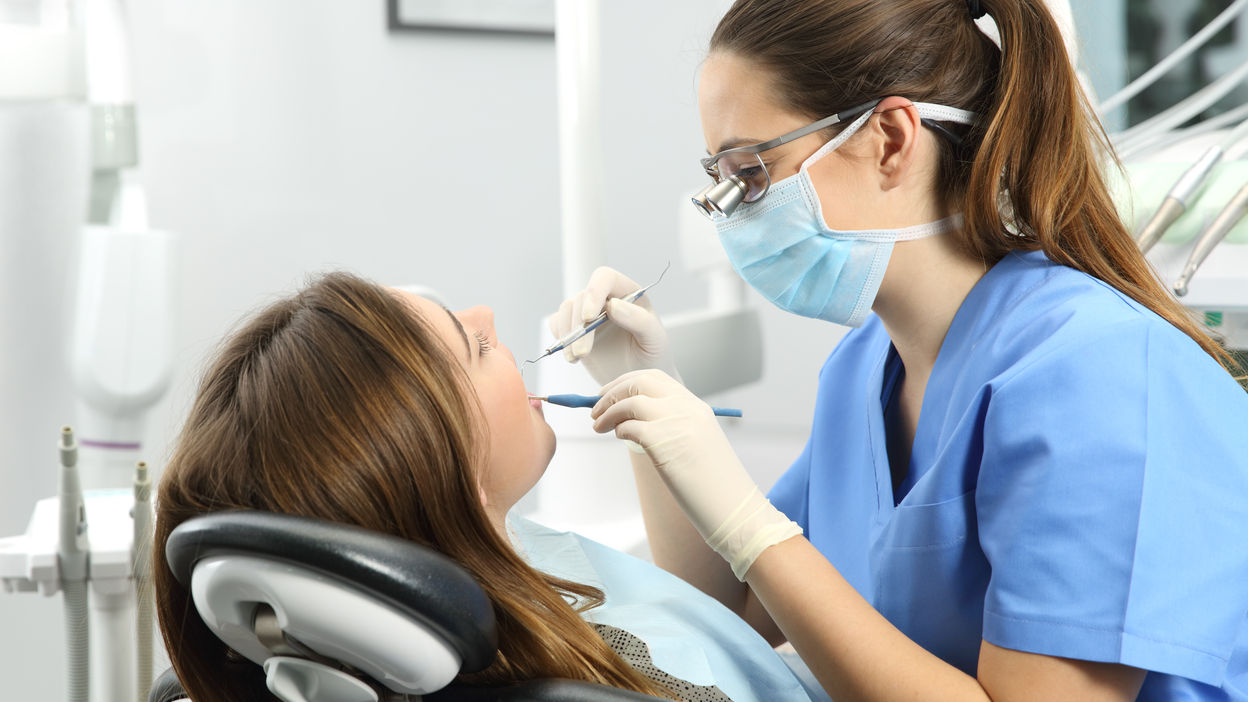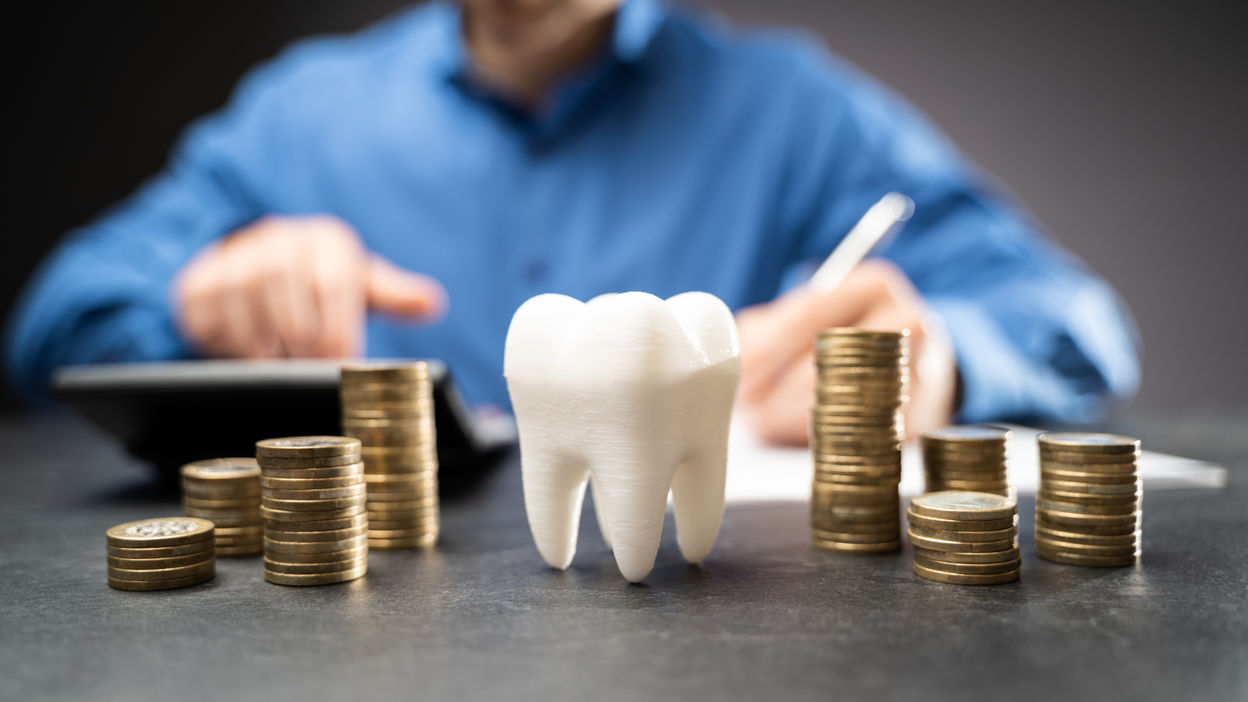How a Personal Loan Can Help Cover Your Dental Costs
A Personal Loan could help cover the costs of these procedures. Letting you enjoy a winning smile without having to wait.

Let’s face it, dental work can be pretty expensive. And unlike most medical treatment, the cost isn’t usually covered by Medicare.
But a Personal Loan might be able to help with this.
It can provide the funds you need to pay for your dental treatment or surgery up-front. And in this article, we’ll show you what to know about getting one.
How it works
With a Personal Loan, the lender provides you with a lump sum that you have to pay back over a certain length of time – the “loan term”.
You’ll do this on a regular basis, making minimum repayments every month. Or, if you prefer, some lenders may let you make these payments every week or fortnight.
What can you use it for?
Personal Loans can be used for a wide range of dental treatments. These might include, but are not limited to:
Veneers. Thin shells placed over your teeth to improve their appearance. Often made from porcelain.
Braces. An orthodontic device used to correct misaligned or crooked teeth.
Teeth whitening. A common procedure that brightens teeth and gets rid of discolouration.
Filling cavities. A simple way of filling up holes in the teeth to stop further deterioration.
Root canals. Replaces the infected inner part of a tooth with a filling.
Extractions. The removal of teeth for various reasons. For example, some wisdom teeth need to be removed as they have no room to grow.
Picking a lender
Since each Personal Loan comes with different rates and fees, comparing them will give you a good idea of which one might be suitable.
You’ll also have the option of choosing between two different loan types:
Unsecured Personal Loans
Generally, these loans can be used for a wide number of reasons – including dental work – and don’t come with purchase restrictions.
However, because they don’t require you to put down an asset as collateral, they usually come with a higher interest than secured loans.
Secured Personal Loans
These loans do require you to put down an asset, such as your car, as a form of security.
This means that if you default on your loan then the lender can seize this asset. But because the risk is lower to the lender, the interest rates also tend to be lower than they would be on an unsecured loan.

Weigh up the costs
Working out the cost of your Personal Loan and dental work is another important part of the process. And before you make a commitment, you’ll want to think over a few things:
- What’s the interest rate?
All Personal Loans come with an interest rate. Over time, this gets calculated as a percentage on the principal (the amount you owe) that you’ll also need to pay.
- Is it fixed or variable?
A fixed interest rate will stay the same over the life of your loan. In contrast, a variable rate can go up or down for a variety of reasons. They can also come with a “redraw facility”, which will let you make additional payments on the loan at no extra cost and withdraw any amount (above the required minimum) that you’ve paid into it.
- Can you pay back the loan amount?
As a general rule, you shouldn’t take out a Personal Loan that you don’t think you’ll be able to pay back on time or with an interest rate that’s not in your budget.
- Will the funds you need meet the lender’s minimum?
Most Personal Loans have a minimum amount they’ll lend out. If you’re only filling a cavity or two, you might not meet that threshold.
- Do you have other expenses?
However, you might be able to take out a Personal Loan to cover your dental work in addition to other expenses, such as home renovations or a holiday.
- What are the fees on the Personal Loan?
Different lenders charge different fees. This might include an application or “establishment” fee, a monthly “loan service” fee and fees for late repayments or paying off the loan too early. However, a careful review of the loan’s product disclosure statement will tell you whether such fees apply.
- Can you use alternative payment methods?
You might not have to pay for the total cost of your dental work right away. Some dental and orthodontic clinics will accept payment plans from medical finance companies that let you pay in instalments.
What about private health insurance?
If you have health insurance, your cover could also provide for any dental work you need to get done.
This will usually come under any “extras cover” for your policy. And what you’ll be covered for also depends on the policy you choose.
However, a waiting period will apply if you’ve just signed up for extras cover or recently upgraded your existing policy.
In these cases, you’ll have to wait before making a claim. For general dental work, that period is usually only 2 to 6 months. But for more intensive work like orthodontics, you may have to wait up to 12 months. For more information on Health insurance for dental work, feel free to call iSelect on 13 19 20.

Public health services
As healthdirect.gov.au mentions, some adults may be eligible for public dental services.
These can involve wait times and require you meet a certain criteria. But if eligible, you might be able to get your fees reduced or waived for some dental procedures.
However, these requirements also vary from state to state. So please consult the link above and visit your state or territory health department website to find out more.
Where can I compare options?
If you’re ready to apply for a Personal Loan for dental work, you can start comparing your options here. At iSelect, we’ll show you a range of lenders* so you can choose the one that suits you.
- About iSelect
- iSelect Services Guide
- Contact us
- How iSelect Works
- Our Company
- Careers
- Media Centre
- Become our Partner
- Sponsorships
